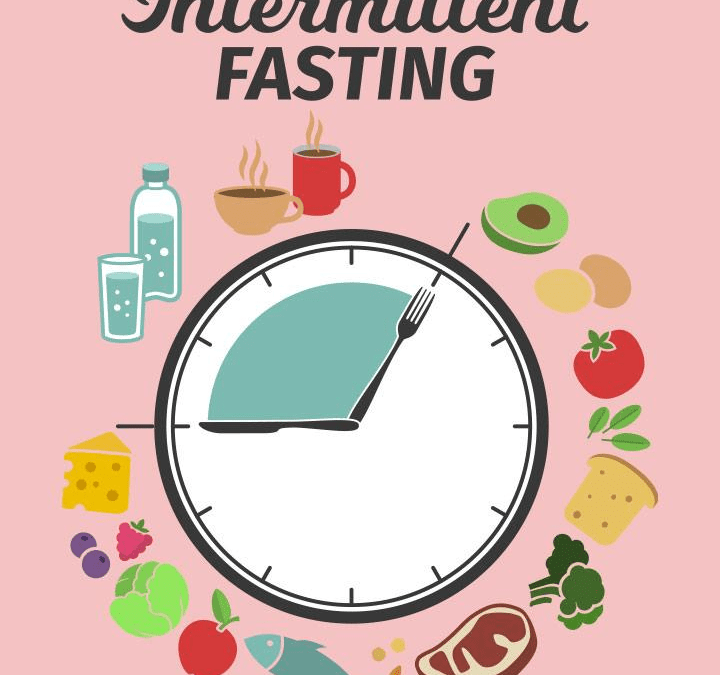Recently, I met a pastor who was a combat marine in 1965 during the Vietnam War who today occasionally suffers from Post Traumatic Stress Disorder (PTSD). Counseling helped a great deal, but the 4th of July fireworks sometimes take him back to the jungle and gun fire of Vietnam. His wife has learned to grab his hand and remind him that he’s safe and with the family in America which helps decrease his stress. How many combat soldiers among us need that comfort and support as well? Further, are there any non-combat people who also suffer from PTSD?
Post Traumatic Stress Disorder (PTSD)?
Post Traumatic Stress (PTSD) is a mental health condition caused from experiencing an extremely terrifying event, being part of trauma or witnessing it. Symptoms may include flashbacks, nightmares, severe anxiety, intrusive, repetitive and uncomfortable thoughts regarding the event. While we often think of it only in combat soldiers it may occur within adults and children of any age.
Adult Symptoms of PTSD
There are a variety of symptoms an individual may experience after a traumatic event.
Intrusive Memories: Repeated thoughts of the traumatic event may occur as if it was happening now. Sleep may be disturbed with horrific nightmares. Certain events such as fireworks may remind them of the event and trigger a strong uncomfortable physical reaction such as increased heart rate, pulse, respirations and blood pressure. It’s as if the person is reliving it repeatedly.
Avoidance: Some people desperately try to avoid thinking about the event. The individual may avoid people, places and activities that are a reminder which leads to social isolation.
Negative Changes in Thinking and Mood: Some suppress the memory of the event, but it comes out in negative thoughts about the world and others. Harmful emotions such as fear, blame, guilt, anger or shame may persist. Poor self-esteem may follow. Emotions are numbed with a detachment from family and friends. Individuals may avoid activities once enjoyed.
Physical and Emotional Changes: While some emotions are numbed, others may be hyper aroused. The individual may be easily frightened, irritable, aggressive or always looking out for danger. Self-destructive behaviors such as alcohol, drug abuse or aggressive driving may occur.
Children’s Symptoms
For children >6 years old he or she may reenact the traumatic event through play or experience unusual frightening dreams.
Suicidal Thoughts
If you or someone you now express suicidal thoughts get help immediately! Reach out to someone you trust, a spiritual leader or healthcare provider.
In the US call or text 988 (24 hour a day Suicide & Crisis Lifeline)
US Veterans can call 988 and then press 1 or text 838255 (Veterans Crisis Line)
If the individual thinks they may hurt themself or someone else call 911!
When to Seek Treatment
If the PTSD symptoms persist after a month from the traumatic event or interfere with a normal life, it’s a good idea to seek a healthcare provider or mental health professional.
Psychological Treatments
The American Psychological Association (APA)’s Clinical Guideline recommends various areas of focus.
Cognitive Behavioral Therapy (CBT): The guideline recommends this approach as the first line of treatment. The individual learns to focus their thoughts, feelings and triggers of the PTSD reactions. New ways of coping are developed and harmful memories regarding the traumatic event are lessened. Avoidance behaviors are explored and reduced with slow prolonged exposures. Baby steps reduce fear.
Eye Movement and Reprocessing (EMDR) This therapy is a second line approach. Disturbing memories can become stored inappropriately or greatly repressed. EMDR directs the individual to briefly focus on their painful memory while moving both eyes in certain directions. In essence it restores the painful memory with a more positive one.
The Cleveland Clinic describes it best:
EMDR therapy is a relatively new — but very effective — method of helping people with traumatic memories. When you undergo EMDR, you access memories of a trauma event in very specific ways. Combined with eye movements and guided instructions, accessing those memories helps you reprocess what you remember from the negative event. That reprocessing helps “repair” the mental injury from that memory. Remembering what happened to you will no longer feel like reliving it, and the related feelings will be much more manageable.
Pharmaceutical Treatments
Anti-depressants The Selective Serotonin Reuptake Inhibitors (SSRIs): sertraline (Zoloft), paroxetine (Paxil) have been approved by the FDA for the treatment of PTSD. These drugs increase serotonin and dopamine (feel good) chemicals in the brain. Other medications may help. It’s important to speak with the healthcare provider regarding benefits verses potential side effects.
Ketamine Infusion Along with therapy, Ketamine Intravenous IV infusions were approved by the FDA to treat PTSD in the 1970’s. It’s an anesthetic that reduces pain and improves mood thus reducing the negative symptoms from PTSD. Therapy is more successful. An IV infusion is administered every 2 to 4 weeks.
Experimental Psychedelic Hallucinogenic Treatments
These emerging treatments also known as psychedelic augmentation are being used to enhance therapy by altering the perception and mood of how the brain perceives negative memories. Preliminary evidence has been promising but these substances are dangerous and must be used under the care of a physician. Currently they are illegal in the US except in a few research studies.
While these are both still Schedule I substances—drugs with high abuse potential and no currently accepted medical use—ongoing research efforts have found support for using these compounds in conjunction with therapy to treat various mental health conditions, including PTSD. The Veterans Health Administration’s (VHA) Office of Research Development (ORD) is funding research on psychedelic compounds in Veterans.
Methylenedioxymethamphetamine MDMA (Ecstasy/Molly) This drug works by targeting memory storing and reducing areas of the brain. Fear is reduced while social engagement, openness, positivity, empathy, and compassion are enhanced. It also increases serotonin, dopamine and oxytocin (feel-good) chemicals in the brain. While much is still unknown a positive interaction occurs between the medicine, the psychotherapy, the participant and the therapist.
Psilocybin (Magic Mushrooms) While much remains unknown as well, these mushrooms seem to work on various neurotransmitter chemicals in the brain similar to serotonin. Participants under the care of a physician report a wide range of unusual experiences for 4 to 6 hours depending on the dose. They describe multiple senses occurring at once such as tasting color, loss of self, mystical experiences, bliss, connectedness to others and a diminished fear response.
Along with therapy it induces emotional breakthroughs with greater positive changes in personality, behavior and well-being. Research is ongoing into the efficacy of Psilocybin-Assisted Therapy (P-AT), but more evidence-based research is definitely needed.
How Can Families Help?
Learn more through the National Center for PTSD (https://www.ptsd.va.gov/). Offer to go with your loved one to appointments with healthcare providers. Listen as much as you can to their stories and frustrations. Go for a walk or bike ride with them to reduce stress. Encourage socialization with other family members and friends.
Tips to Deal with Anger
Set a Time Out: Determine a signal when anger and frustrations get heated to take a time out until cooler heads prevail. Agree to share where you’ll go and what you’ll do during the time out. Also determine how long the time out should last.
After the Time-Out: Take turns talking about the problem. Listen without interrupting. Use I think or I feel instead of youstatements. Be open to the other person’s point of view. Focus on things you both think will work and agree on solutions. These are great strategies for all of us but especially for someone with PTSD who struggles with an appropriate anger response.
On A Personal Note:
It’s hard to imagine what our hero soldiers went through during combat in war. One of my Great, Great, Grandfathers lost an arm during the Civil War while the other Civil War grandfather never spoke of it. We didn’t even know he served until recently. He lived in Pennsylvania at the time and probably enlisted or was drafted from there. General – President Grant was a distant relative.
We pondered what happened that kept him so quiet. He was also the relative who traveled by covered wagon from Chicago to western Kansas during the great western migration. Why did he never speak of his war experience? I think PTSD may have played a role.
Personally, I’m praying for peace in the Middle East and with Ukraine and Russia. The last thing we need is another war where our soldiers are called upon to experience horrific combat with injuries and or death.
PTSD occurs in other people who didn’t serve in a war. One can only wonder what horror those victims endured. If you or someone you love suffer from any kind of trauma…please reach out for more information and get help. Ask you pastor or spiritual leader for a Christian counselor who specializes in PTSD or trauma recovery. There is much that can be done.
Thank you to our soldiers who bought our freedom. May you get the love, healing and patience that you need.
Be strong and courageous. Do not be frightened, and do not be dismayed, for the Lord your God is with you wherever you go (Joshua 1:9).
Reference:
“Post-traumatic Stress Disorder (PTSD),” Mayo Clinic. August 16, 2024. https://www.mayoclinic.org/diseases-conditions/post-traumatic-stress-disorder/symptoms-causes/syc-20355967
“PTSD Treatments APA’s Clinical Practice Guideline Recommends Three Interventions for Treating Posttraumatic Stress Disorder and Suggests Another Four,” April 2025. https://www.apa.org/ptsd-guideline/treatments.
“EMDR,” The Cleveland Clinic, (March 29, 2022). https://my.clevelandclinic.org/health/treatments/22641-emdr-therapy
“Medications for PTSD, American Psychological Association APA (April 2025). https://www.apa.org/ptsd-guideline/treatments/medications
Wadmin, “How Ketamine Infusion Therapy Is helping patients Struggling with PTSD symptoms” Mindful Health Solutions, (February 6, 2023). https://mindfulhealthsolutions.com/how-ketamine-infusion-therapy-is-helping-patients-with-ptsd-symptoms/
- Morland & J. Wooley, “Psychedelic-Assisted Therapy for PTSD,” PTSD National Center for PTSD, Veterans Administration, (June 25, 2025). https://www.ptsd.va.gov/professional/treat/txessentials/psychedelics_assisted_therapy.asp
“Helping a Family Member Who Has PTSD” VA PTSD: National Center for PTSD (March 26, 2025). https://www.ptsd.va.gov/family/how_family_member.asp
PTSD: National Center for PTSD, VA, (May 9, 2025). https://www.ptsd.va.gov
I’m a Christian nurse who helps people navigate the murky waters of healthcare
Author of Wake UP Call 911: It’s Time to Reduce your Risk for A Heart Attack and Stroke (2015) and Helping the Hurting: Nursing Ministry in the Body of Christ (2022).
You may visit my website for additional information: jenniejohnsonrn.com
All rights reserved 2025, Jennie E. Johnson, RN-BC, PhD
Paperback copies of both books for sale. Email me for details at: ask@jenniejohnsonrn.com.










Recent Comments